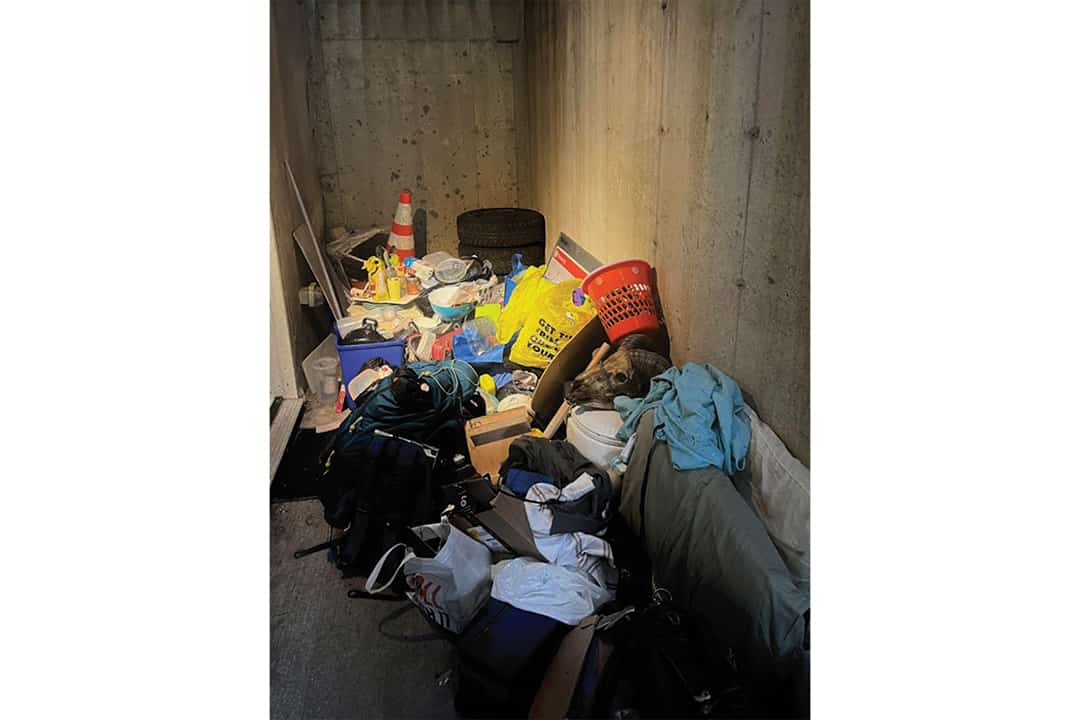On September 4, two international students at U of T returned to their rented basement apartment in North York to find other tenants occupying their residence. The students, who had been on a 10-day trip to New Jersey, allege that their landlord gave them insufficient notice — of just two days — prior to their removal.
The students, Hamza and Abdullah Mohammed — brothers from the United Arab Emirates — discussed the circumstances surrounding their removal in an interview with The Varsity.
Background
Hamza and Abdullah had rented the North York basement apartment since September 2021. On August 26 — with plans to renew their lease, which was set to expire on August 31 — the brothers left for New Jersey.
On August 29, Abdullah claims that Sumit Sen, their landlord, texted to demand that the brothers vacate the apartment on September 1 and not renew their lease.
The brothers said that they consequently cancelled the remainder of their New Jersey trip and returned to their apartment. When they arrived, they found their belongings outside the residence, as well as strangers sleeping in their beds.
Hamza and Abdullah said that their landlord had cited the messiness of Hamza’s room as the reason behind the removal. The brothers suggest that this is a “fake claim.”
Hamza explained that they had expected “at least a month’s notice to find a new place.” He continued, “until [the point of the removal], we were under the impression that the lease will continue to grow from month-to-month basis.” According to their lease agreement, if the brothers did not give notice to end their tenancy by the end of their initial one-year lease, their tenancy would become month-to-month.
According to Ontario rental laws, month-to-month tenancy begins automatically when the lease for a residential property expires and no new lease has been signed.
Furthermore, landlords are required to provide notice of removal or termination of the lease at least 60 days prior to the end of the lease.
Rental laws in Ontario also stipulate that tenants are not required to vacate the rental residence once they have received notice of termination or eviction. The landlord must apply for and receive an eviction order from the Landlord Tenant Board (LTB) — the provincial body responsible for overseeing dispute resolution between landlords and tenants and processing eviction orders in Ontario.
Since their removal, the brothers have found a new place to live, but it came with an increased rent price. “Financially, it’s really difficult. I didn’t plan for this,” said Hamza.
According to the brothers, their former landlord continues to withhold their last month’s rent from them and tried to get them to sign “a waiver form that would prevent [them] from going to court or to the media” about their experience after the removal.
Now, the brothers have filed an application against their former landlord at the LTB.
The Varsity has attempted to reach Sen for comment four times. Sen picked up one call but hung up upon mention of the case.
Legal perspective
In an interview with The Varsity, Brooke Stewart, a paralegal at Stewart Legal & Mediation who is representing the brothers in their application at the LTB, said that their landlord’s actions may have been “unlawful.” Stewart referenced the Ontario law requiring landlords to give tenants 60 days’ notice that they are facing eviction.
Stewart said that the landlord is responsible for providing proper notice to the tenants and citing the exact reasons for eviction. It is then the tenant’s decision to consider rectifying the cited problems, she continued. “If they chose not to rectify that at that time, then the landlord can proceed with an application to evict the tenant, where then a hearing [with the LTB] would be held,” she said.
Stewart added that landlords are not allowed to enter the tenants’ space without a 24 hours’ written notice and may only enter the space within certain times of the day. However, according to Stewart, the lease that Hamza and Abdullah had signed in August 2021 stipulated that the landlord could enter their basement apartment whenever he wanted.
Regardless, Stewart explained that this condition in their lease did not matter because any clause in a lease agreement that contradicts the Residential Tenancies Act is automatically deemed “void,” or having no legal effect.
Stewart said, “I’ve seen [such clauses in tenancy agreements] more frequently… We’re seeing landlords enter provisions into leases that are actually unlawful and that will be deemed void on the onset, but a lot of tenants don’t realize that so… they’re subject to these terms that are essentially unlawful and not valid.”
Stewart explained that it’s important for students to share their stories and understand their rights when it comes to housing and landlord-tenant relationships. Stewart offers free consultations for “any landlord-tenant matter.”
U of T also provides a housing resource library for students to find Toronto-specific resources, including tenant education videos, Landlord & Tenant Board Forms database, and Steps to Justice — a resource that compiles answers to legal questions on various topics, including housing and rental law.


